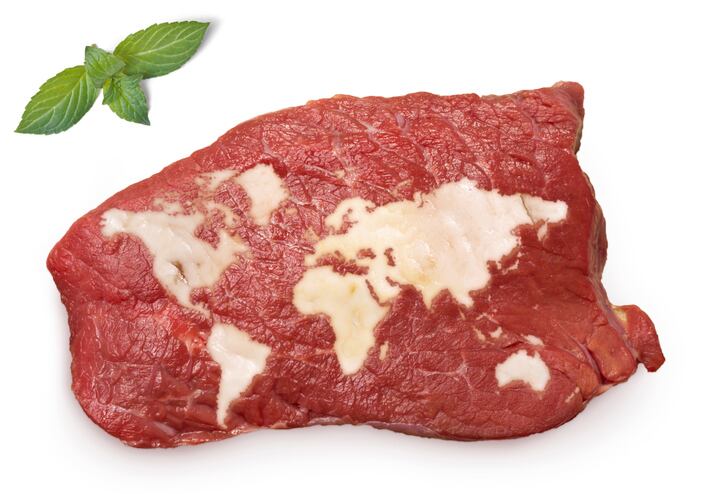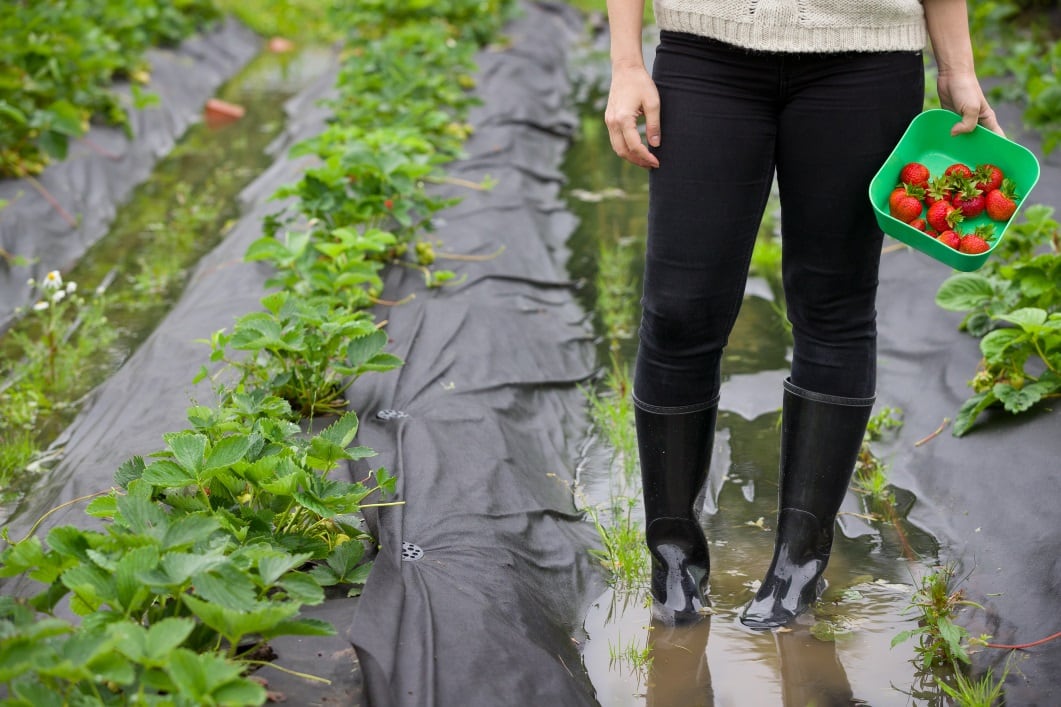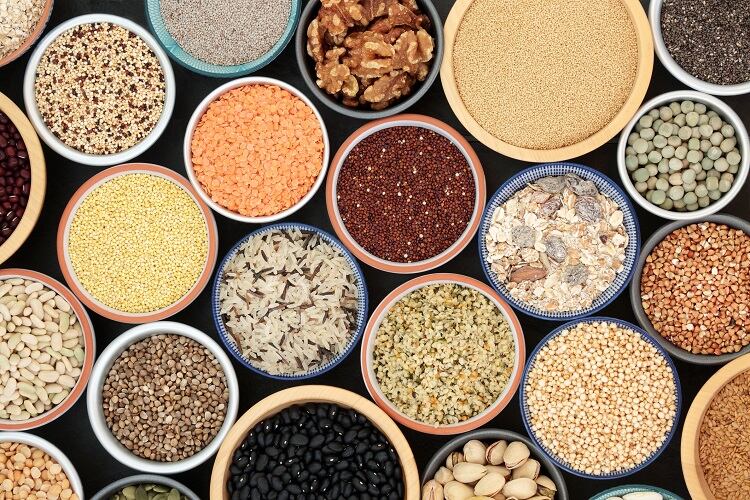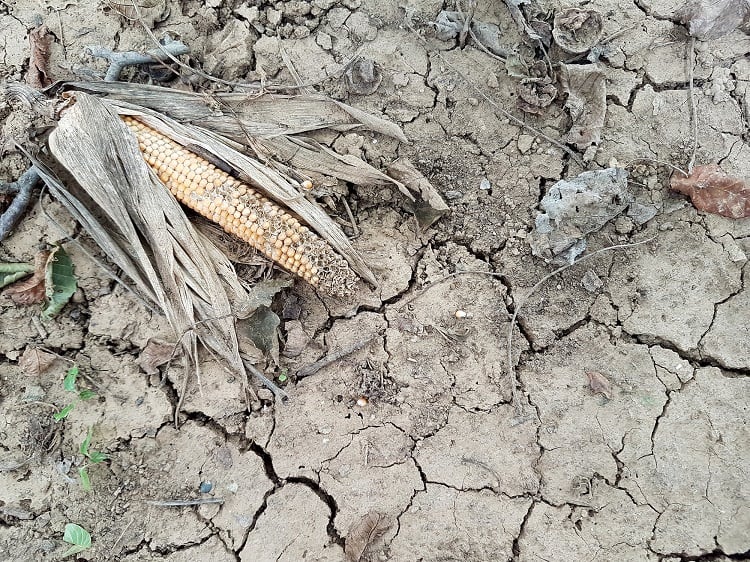Almost half of current food production is harmful to our planet, causing biodiversity loss, ecosystem degradation and water stress, according to researchers from the Potsdam Institute for Climate Impact Research (PIK).
“Currently, almost half of global food production relies on crossing Earth’s environmental boundaries,” Gerten, lead author from PIK and professor at Humboldt University of Berlin, warned.
However, there is reason for optimism, according to the academic, who headed up a major new study into the subject. “When looking at the status of planet Earth and the influence of current global agriculture practices upon it, there’s a lot of reason to worry, but also reason for hope – if we see decisive actions very soon,” he suggested
The research, released to coincide with the World Economic Forum in Davos and International Green Week in Berlin, suggests a ‘comprehensive solution package’ – equating to a fundamental redesign of the global food system – in order to feed the growing population without exhausting the Earth’s finite natural resources.
It includes adopting radically different ways of farming, reduction of food waste, and dietary changes.
Food system recalibration needed
Current models of agricultural production are not fit for purpose because they are too resource intense.
“We appropriate too much land for crops and livestock, fertilize too heavily and irrigate too extensively. To solve this issue in the face of a still growing world population, we collectively need to rethink how to produce food,” Gerten warned.
However, solutions can be found, he continued. “Excitingly, our research shows that such transformations will make it possible to provide enough food for up to ten billion people.”
The researchers posed the question of how many people can be provided with adequate calories while maintaining a ‘strict standard of environmental sustainability worldwide’.
Environmental capabilities were defined in terms of planetary boundaries – ‘scientifically defined targets of maximum allowed human interference with processes that regulate the state of the planet’. The research focused on four of nine boundaries most relevant for agriculture: biosphere integrity (keeping biodiversity and ecosystems intact); land-system change; freshwater use; and nitrogen flows.
Based on what is described as a ‘sophisticated simulation model’, the researchers claimed to scrutinise impacts of food production on these boundaries ‘at a level of spatial and process detail never accomplished before’ on a worldwide basis.
The researchers reached the ‘encouraging’ conclusion that a total of ten billion people could be fed sustainably without exhausting the planet’s resources.
A complex global picture
There is no one-size fits all solution and regional variations in global food production require distinct responses.
As Johan Rockström, director of PIK, elaborated: “We find that currently, agriculture in many regions is using too much water, land, or fertilizer. Production in these regions thus needs to be brought into line with environmental sustainability. Yet, there are huge opportunities to sustainably increase agricultural production in these and other regions. This goes for large parts of Sub-Saharan Africa, for example, where more efficient water and nutrient management could strongly improve yields.”
Creating a virtuous cycle, sustainable agriculture can also increase overall climate resilience while limiting global warming, the research suggested.
However, increasing sustainable local food production will not be enough to cater for populations in areas like the Middle East, Indonesia and – to a lesser extent – central Europe. “Farming is so far off local and Earth’s boundaries that even more sustainable systems could not completely balance the pressure on the environment… Even after recalibrating agricultural production, international trade will remain a key element of a sustainably fed world.”
Land-use changes a ‘demanding challenge’
Transitioning to more sustainable land-use systems is perhaps the most ‘sensitive and challenging’ implication of the study.
Wolfgang Lucht, co-chair for Earth System Analysis at PIK and co-author of the study, believes this will prove an acid-test for policy makers if a radical re-invention of the food system is to be successfully delivered.
“Anything involving land tends to be complex and contested in practice because people’s livelihoods and outlook depend on it. Transitioning to more sustainable land use and management is therefore a demanding challenge to policy-making,” he suggested.
But such changes are not out of reach, Lucht continued. “Key to success is that the regions affected need to see clear benefits for their development. Then there is a real chance that support for new directions will grow fast enough for stabilising the Earth system.”
Move from animal to plant protein necessary
A large-scale dietary shift from consumers is also needed to turn the tide towards a sustainable food system, the researchers concluded.
Pointing to China’s rising levels of meat consumption, the paper suggested some animal protein will need to be substituted with plant-based proteins.
“Changes like this might seem hard to chew at first. But in the long run, dietary changes towards a more sustainable mix on your plate will not only benefit the planet, but also people’s health," PIK’s Vera Heck suggested.
Cutting food waste will be key
A ‘crucial factor’ in feeding the world’s rising population will be addressing the problem of food waste, the study suggested.
Scenarios adopted in the study assumed up to 30% of the food produced globally is lost, in line with the most recent findings from the Intergovernmental Panel on Climate Change (IPCC).
“This situation clearly calls for resolute policy measures to set incentives right on both the producers’ and consumers’ ends," Heck suggested.
Source
'Feeding ten billion people is possible within four terrestrial planetary boundaries'
Nature Sustainability
DOI: https://doi.org/10.1038/s41893-019-0465-1
Dieter Gerten, Vera Heck, Jonas Jägermeyr, Benjamin Leon Bodirsky, Ingo Fetzer, Mika Jalava, Matti Kummu, Wolfgang Lucht, Johan Rockström, Sibyll Schaphoff & Hans Joachim Schellnhuber




